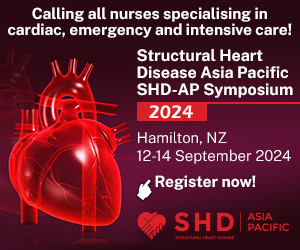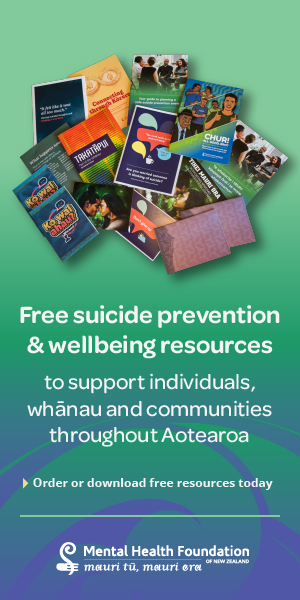We have wondered for many months now about why there is resistance among nurses to being vaccinated against COVID-19, and why some nurses spread misinformation about the vaccine.
While we acknowledge there are genuine reasons why some nurses may not be able to be vaccinated, we are deeply concerned about nurses spreading fear and anxiety in the public, and on social media.
While trying to make sense of the reasons why some nurses are vaccine-hesitant, we came across a presentation by Dr Mike Lee on Radio New Zealand (University of Auckland) that explored some of the reasons why people may be vaccine hesitant.1 His innovative theory has been incorporated here in an attempt to understand why this might occur within our own profession.
Lee believes people who are hesitant to accept a range of health decisions generally fall into four main categories:
Philosophical differences:
There are people who have a different philosophy on life. There may be religious objections to accepting the vaccine, or cultural obligations that some must adhere to that others are not constrained by.
A reluctance to be told what to do:
People generally do not like being told what to do. However, not following the advice of the scientific community and choosing to believe unsubstantiated online posts and conspiracy theories seems dangerous, not just to yourself but to your patients.
The need to weigh up the risks and benefits:
People tend to weigh up the risks and benefits of any choice they are trying to make. Weighing up the positives and negatives is a sensible thing to do when making decisions related to your health. This decision-making process could go something like this:
“I might not get COVID-19 because others are being vaccinated, and anyway only older people are getting sick so why risk having a vaccine?”
This is balanced alongside thoughts such as:
“The vaccine might make me magnetised, cause seizures or infertility, or provide the government with a tracking device.”
This line of thinking, while biologically impossible, might work for some, who will inevitably have to rely on others in the community to get vaccinated. But it is a risky gamble for a nurse employed in the health sector, who is coming into contact with people who may themselves not be vaccinated.
Uncertainty about the safety or effectiveness of the vaccine:
People who pass on misinformation about the vaccine feed into uncertainty, promote hesitancy and place people’s lives at risk. This is no longer about personal choice when others are influenced by your ideas.
Any one of these theories puts the nurse at high risk of contracting the virus, taking up intensive care unit (ICU) or hospital space and requiring ventilatory support. This has been seen in the trends both nationally and internationally for unvaccinated people. Worse still, they may pass the virus on to vulnerable others.
The nursing profession has an obligation to provide safe care to the public, uphold ethical codes and professional standards for practice and maintain a sound body of knowledge.2, 3, 4, 5 The theories behind why people are hesitant to be vaccinated presented above do not explain why nurses choose to share misinformation about the vaccine.
The Government has now mandated the vaccine for high-risk workers in the health and disability sector and school and early learning staff.6 This is supported by the Tertiary Advisory Services (TAS) report released in September 2021 that stipulates that all pre-registration health discipline students who are not fully vaccinated will not have access to DHB clinical placements.7
The nursing profession is also very clear. The Nursing Council issued a guidance statement specifically related to the vaccine that clearly sets out the required professional responsibilities of nurses.
“The Nursing Council strongly recommends that all practising nurses take up the opportunity to be vaccinated – unless medically contraindicated. You have an ethical and professional obligation to protect and promote the health of patients and the public, and to participate in community health efforts”.8
In an open letter to the people of New Zealand, numerous signatories including frontline nurses, nurse leaders, nurse educators and vaccinators illustrated their support for all eligible people to be vaccinated against COVID-19.9 These are examples of reputable, reliable sources of evidence-based information.
Dispel uncertainty
You do not have to be a statistician to look at numbers that could help dispel the uncertainty. According to the Ministry of Health,10 as at October 21, 2021, there were:
- 6.3 per cent of people who contracted the virus requiring hospitalisation, including ICU admissions (5315 known cases resulted in 336 hospitalisations).
- 0.05 per cent of COVID-19 cases in New Zealand led to deaths related to exposure to the virus (of the 5315 covid cases, there have been 28 deaths).
- Only 24,142 non-serious and 929 serious events (or “side effects”) directly related to the vaccine have been reported. This is a very small proportion of the 5,321,863 doses administered to date – 0.47 per cent. It is important to note that one person can experience a number of “events”.10 That is, events do not equal the number of people. Also noteworthy is that the minor events are very minor, especially when compared to the possible health outcomes of an uncontrolled COVID-19 virus, such as Long COVID or death.
Vulnerable people
While we are fortunate to live in a country that guarantees our rights through the New Zealand Bill of Rights Act 1990,11 there is another side to having rights, and that is the requirement to take responsibility. This is especially important for nurses, who care for vulnerable people. For nurses, this includes not only personal responsibility but responsibility to the profession and the community, and not disregarding or overriding other people’s rights.
This is no longer a rights or personal freedom issue; it is about the safety of the community.
Doctors are increasingly being investigated for misconduct by the Medical Council when found to be sharing misinformation.12 There are also professional consequences from the Nursing Council, under the Health Practitioners Competence Assurance Act 2003, for nurses who do the same.8 This is no longer a rights or personal freedom issue; it is about the safety of the community.
Challenge for nurses
The challenge for nurses trying to educate themselves, to do the right thing and to access the correct information, is to gather information from reputable, evidence-based sources. That does not include social media or unsubstantiated opinion.
Until this stops, uncertainty, and the virus, are free to circulate, and unvaccinated nurses (those who could be vaccinated but refuse to be), and nurses spreading misinformation are placing others at risk.
Margaret Hughes, RN, PhD, is a senior academic staff member in the Department of Health Practice, Manawa, Ara Institute of Canterbury, Christchurch.
Karen Edgecombe, RN, MN, is academic manager and co-head of nursing in the Department of Health Practice, Manawa, Ara Institute of Canterbury.
References
- Lee, M. (2021, October). A marketer’s insights into vaccine hesitancy. Oral presentation for Smart Talk RNZ New Zealand.
- New Zealand Nurses Organisation [NZNO]. (2012). Standards of professional nursing practice (PDF 653 KB).
- Nursing Council of New Zealand [NCNZ]. (2012a). Code of Conduct. Author.
- Nursing Council of New Zealand [NCNZ]. (2012b). Guidelines: Professional behaviours. Author.
- Nursing Council of New Zealand [NCNZ]. (2012c). Guidelines: social media and electronic communication. Author.
- Hipkins, C. (2021). Mandatory vaccination for two workforces. Ministry of Health [MOH] – Beehive press release. (October 11th).
- Tertiary Advisory Services (T.A.S.) (2021, Sept 24). Guidelines for Pre-Registration Health Discipline Student Placements at all DHBs (PDF 358 KB).
- Nursing Council of New Zealand [NCNZ]. (2021, Oct 15)). Presentation by Nursing Council New Zealand (Helen de Montalk). The Code of Conduct.
- Nurses of Aotearoa New Zealand supporting vaccination. (2021). An open letter to the people of New Zealand.
- Ministry of Health [MOH]. (2021). Covid-19: Vaccination side effects and reactions.
- New Zealand Bill of Rights Act 1990.
- Broughton, C. (2021). Thirteen doctors under investigation after complaints about spread of Covid-19 misinformation. Stuff NZ.




